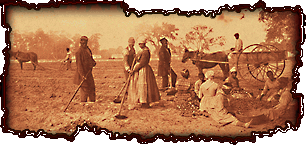|
|
 |
|
Consensus on basic principles of government was essential to the success of the Philadelphia convention. But conflict
over the implementation of these principles not only tied up the convention for the entire summer but later threatened to
prevent the states from ratifying, or voting to approve, the document the convention produced.
|
 |
|
Representation was the most controversial issue in Philadelphia. Following the election of George Washington as president
of the convention, Governor Edmund Randolph of Virginia rose to present a draft of a new constitution. This Virginia Plan
called for a legislature with two houses: a lower house chosen by the people of the states, with representation according
to population; and an upper house to be chosen by the lower house. The Virginia Plan also proposed a parliamentary form of
government, in which the legislature chose the principal executive officers of the government as well as federal judges. The
Virginia Plan also included a curious "council of revision," with the power to veto acts of Congress.
|
 |
|
Another conflict absorbing the attention of the delegates was slavery. In 1787 slavery was legal everywhere except in
Massachusetts. Nevertheless, the delegates were too embarrassed to use the word slave or slavery in their
debates or in the Consitution itself. Instead, they referred to "other persons" and "persons held to service or labour."

|
 |
|
Another important conflict centered on qualifications for voting and holding office in the new government. Most of the
delegates believed that voters as well as officeholders should be men of property. But delegates argued over the specific
wording of property qualifications, their views on the subject reflecting the source of their own wealth.Merchants, bankers,
and manufacturers objected to making the ownership of a certain amount of land a qualification for officeholding. James Madison,
a plantation owner himself, was forced to admit that "landed possessions were no certain evidence of real wealth. Many enjoyed
them who were more in debt than they were worth." After much debate, the convention approved a constitution without any expressed
property qualifications for voting or holding office, except those that the states might impose themselves: "The Electore
in each State shall have the Qualifications requisite for Electors of the most numerous Branch of the State Legislature."
At the time, every state had property qualifications for voting, and women were not permitted to vote or hold office.
|
 |
|
|
|
|
Curtousy of Politics in America by Thomas R. Dye
|
|
|
 |

